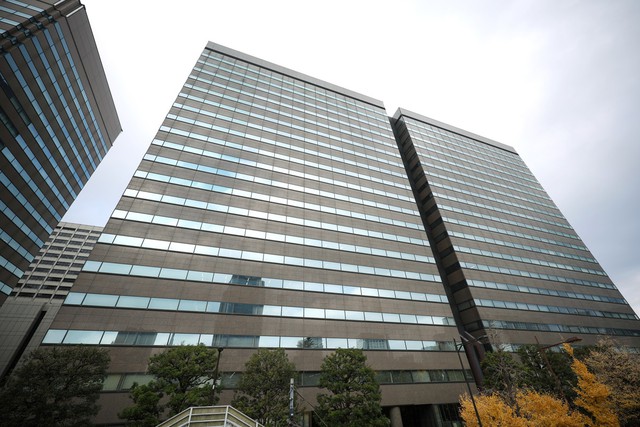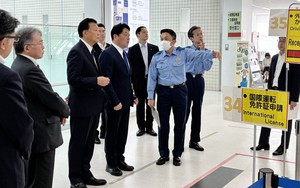
A central government building in Tokyo that houses the Justice Ministry. Photo: Jiji Press
The panel met at the Justice Ministry to discuss the country's foreign worker programs.
Japan accepts foreign bus and taxi drivers under the Type 1 category of its residency status system for foreign nationals with certain skill levels.
With Type 1 status, they are allowed to work in Japan for up to five years.
Bus and taxi drivers are required to have higher Japanese language proficiency than in other occupations, as they need to offer customer services and handle emergency situations.
The Japanese government decided to ease the language requirement after the number of successful applicants for a Type 1 residency evaluation test to become bus or taxi drivers in Japan stood at zero as of the end of April this year.
Currently, foreign nationals wanting to work as bus or taxi drivers in Japan are required to have the N3 level of the Japanese Language Proficiency Test, which shows an ability to understand daily conversations to some extent and is the third highest of the five-level system.
The government is looking at lowering the requirement by one notch to the N4 level.
Drivers with the N4 Japanese language level will be required to be accompanied by a Japanese-language helper when on duty and will be encouraged to reach the N3 proficiency level as soon as possible.
At the meeting, the government also proposed adding the field of logistics warehouses, the sector providing bed sheets and other items to hotels and hospitals, and the industry related to waste disposals to the list of industries eligible for the Type 1 program and a new skill development program for foreign workers.
The new program will be introduced in April 2027, replacing the country's technical intern program.
It aims to train foreign nationals to be eligible for Type 1 status in three years.




Max: 1500 characters
There are no comments yet. Be the first to comment.